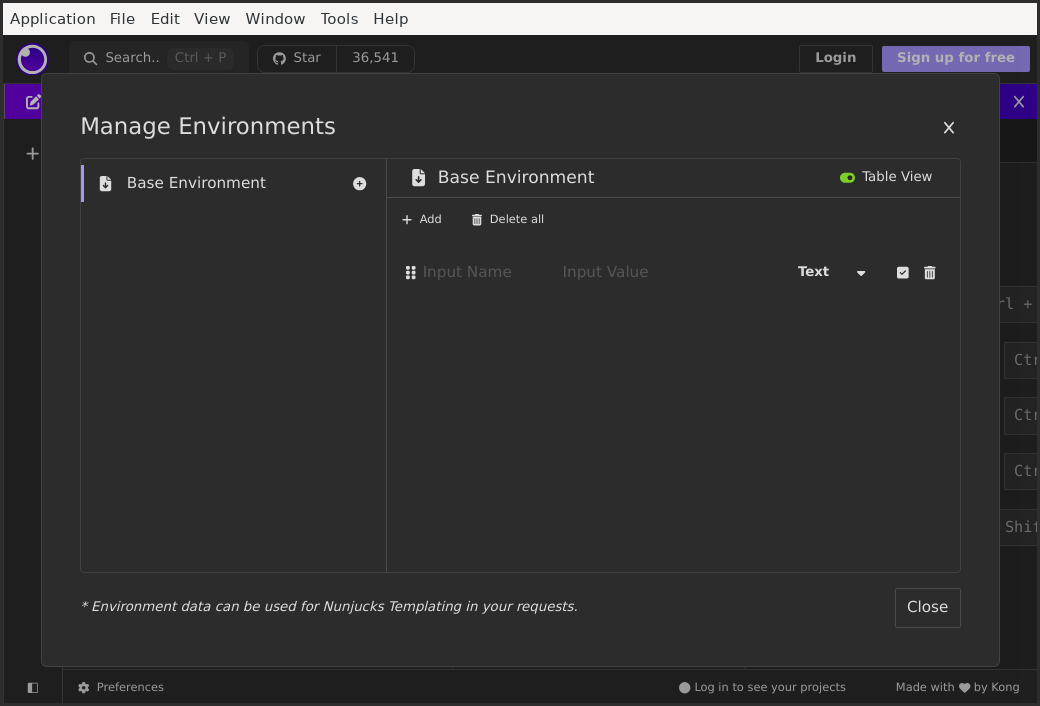A critical security vulnerability has been uncovered in the Insomnia API Client, developed by Kong, that allows for arbitrary code execution through template injection, posing significant risks to both API developers and security professionals.
The flaw, which remains exploitable in Insomnia version 11.2.0, stems from improper handling of user-controlled input within the Nunjucks template engine integrated in the application.
This issue enables attackers to execute malicious code on a victim’s system by leveraging crafted template strings propagated through imported files, copied user input, or even server-supplied HTTP cookies.
Remote Code Execution Achievable
The vulnerability was initially discovered during routine API penetration testing, when an unexpected result indicated that Insomnia was evaluating template expressions such as {{7*7}} locally, substituting the input with its computed value before transmitting it to the API.
Upon further investigation, it was determined that the application’s templating mechanism would unwittingly process arbitrary user-supplied Nunjucks expressions in various input fields, including URLs, query parameters, request bodies, environment variables, and cookie values.

More alarmingly, a remote exploitation vector was demonstrated: a malicious API endpoint could supply a specially-crafted Set-Cookie header containing a Nunjucks payload.
When Insomnia users interacted with such endpoints, the application would render the malicious template, ultimately invoking arbitrary shell commands via Node.js’s child_process module effectively granting the attacker remote code execution within the context of the victim’s machine.
The root of the flaw lies in Insomnia’s trust in user-supplied values to form template expressions and the unguarded power of the Nunjucks templating engine.
While dynamic templates are useful for advanced workflows, Nunjucks is not designed to safely render data from untrusted sources, as highlighted in its own documentation.
Multiple Mitigations Attempted
Attempts by Kong to mitigate the issue such as blocking the keyword require, limiting accessible modules, and removing dangerous global functions from the template context were each shown to be bypassable.
Attackers were able to obfuscate payloads, exploit alternative access patterns such as module.require, or leverage remaining template engine features like joiner.constructor to achieve their goals.
The disclosure process spanned several months and saw multiple mitigation attempts by Kong.
However, effective remediation remains elusive, as incremental fixes have repeatedly been circumvented.
The flaw highlights the inherent risks of allowing untrusted data to influence powerful templating systems, especially in tools widely used for API development and security testing.
Security professionals and organizations using Insomnia are advised to exercise extreme caution when importing API collections, accepting server-provided cookies, or copying data into the client, especially from untrusted sources.
As an interim measure, users should inspect for suspicious template expressions typically denoted by double curly braces {{...}} before use, disable cookie processing where possible, and consider patching or disabling template rendering altogether for sensitive workflows.
This vulnerability emphasizes the need for careful security design in development tools, particularly those that accept or process externally-controlled inputs.
It also underscores the limitations of “band-aid” mitigations in the face of complex, architectural flaws in software systems.
To avoid similar risks, developers are encouraged to utilize safer, logic-less templating engines or implement robust input validation and sandboxing mechanisms when processing potentially dangerous user input.
As of the latest update, Insomnia users remain exposed, and Kong has not issued a comprehensive security bulletin beyond the assignment of CVE-2025-1087.
The security community is advised to monitor this issue closely and apply available workarounds to mitigate exploitation risks.
Find this Story Interesting! Follow us on LinkedIn and X to Get More Instant updates